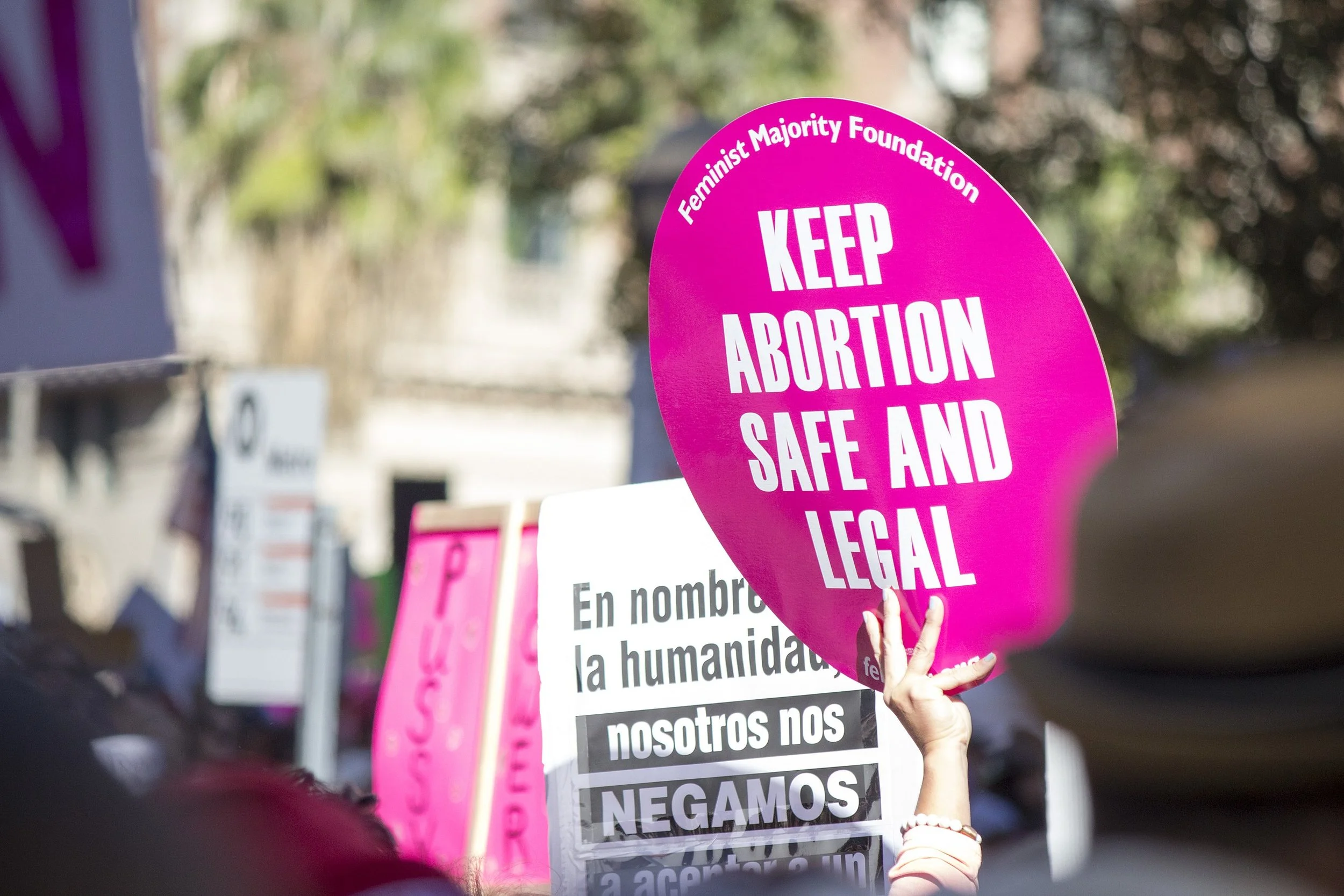France to constitutionalise abortion access: a deep dive into global abortion politics
American Protestors in 2017 at the Women’s March/Photo Courtesy: Wikimedia Commons
On December 13th 2023, a bill to enshrine abortion in the French Constitution will be presented to the Council of Ministers. This bill will be examined in early 2024 by Parliament and follows President Emmanuel Macron’s promises on March 8th and October 29th that “in 2024, the right of women to choose abortion will become irreversible.”
If the revision is adopted, France will be the first country to explicitly designate access to abortion as a constitutional right. As French Senator Melanie Vogel explains: “The Constitution will never be an eternal and absolute protection, but any attempts by legislators to undermine this right would now be censored by the Constitutional Council”.
Constitutional revision in France can be issued by referendum and according to recent reports, more than 80% of French people are in favour of this reform. However, President Macron is choosing a speedier solution: bringing the bill to both chambers of parliamentary houses, the National Assembly and Senate, where it will require approval by three-fifths of the representatives.
The Elysée justified this choice, explaining that a referendum on the subject risked giving a disproportionate platform to opposers of the text, according to AFP. Sarah Durocher, President of National Family Planning, adds that many committed anti-choice movements have the means to create damaging campaigns.
According to estimates of Parliamentary majorities and the expected media pressure, there is a high likelihood that the constitutional bill will pass.
A fearful response to global trends
Enshrining abortion as a constitutional right is a big win for both French feminist movements and several political parties, from the left to centrists, who have been pushing for this since the US Supreme Court’s decision in June 2022 to overturn the Roe v Wade ruling of 1973.
Sarah Durocher notes that "although we are not at the same stage as the US, we are seeing restrictions in Europe”. In Poland, abortions are only allowed in the event of rape, incest or a threat to the mother’s health or life, and restrictions were further tightened in 2020 when the country’s constitutional tribunal ruled that abortions on grounds of birth defect were unconstitutional.
In September 2022, Hungary’s far-right government made the process of pursuing abortion more bureaucratic, including an obligation for pregnant women to “listen to the foetal heartbeat” before having the right to access safe abortions. “Abortion is widely accepted in Hungary today”, said Noá Nógradí, from Patent, a Hungarian women’s rights organization. She adds that “the government cannot outlaw the procedure overnight but taking a series of small steps towards restriction can pass more easily.”
Likewise, in Italy, accessing abortion can be difficult due to an estimated 70% of gynecologists being moral objectors and who refuse to perform the procedure. Despite concerns, Prime Minister Giorgia Meloni assured that abortion would remain legal.
Sarah Durocher, asks: “Why would France be an exception? How can we say that abortion here cannot be threatened?”, citing the recent attacks launched against family planning branches, the rise of far-right parties and the “disinformation” orchestrated by “anti-choice” movements in France.
Liberalization of abortion laws globally
In reality, the past decades have been marked by a liberalization of abortion laws globally, with increased access to reproductive health services, an improvement in the quality and safety of abortion care and maternal survival. Over the last 25 years, nearly 60 countries have liberalized their abortion laws — though some only incrementally.
Since 2020, for example: Thailand and Argentina legalized abortion, South Korea decriminalized abortion, and New Zealand eased restrictions. Most recently, amid a rise of “green wave”, an abortion-rights movement in Latin America, Colombia legalized abortion on demand for up to twenty-four weeks of pregnancy. Mexico’s supreme court also ruled that criminalizing abortion is unconstitutional, Ecuador’s legislature made abortion legal in the case of rape, and in Chile, lawmakers began seeking to guarantee reproductive rights for women in the country’s new constitution.
According to the Center for Reproductive Rights, four countries have actually rolled back abortion rights since 1994: the US, El Salvador, Nicaragua and Poland.
These legislative regressions ignited international panic, including a quick response from France to guarantee abortion as a non-negotiable. While the push for stricter laws in these countries is alarming and often linked to religious influence, the global concern surrounding these setbacks and the liberalization of laws globally point to a move towards progress which is not to be disregarded.

